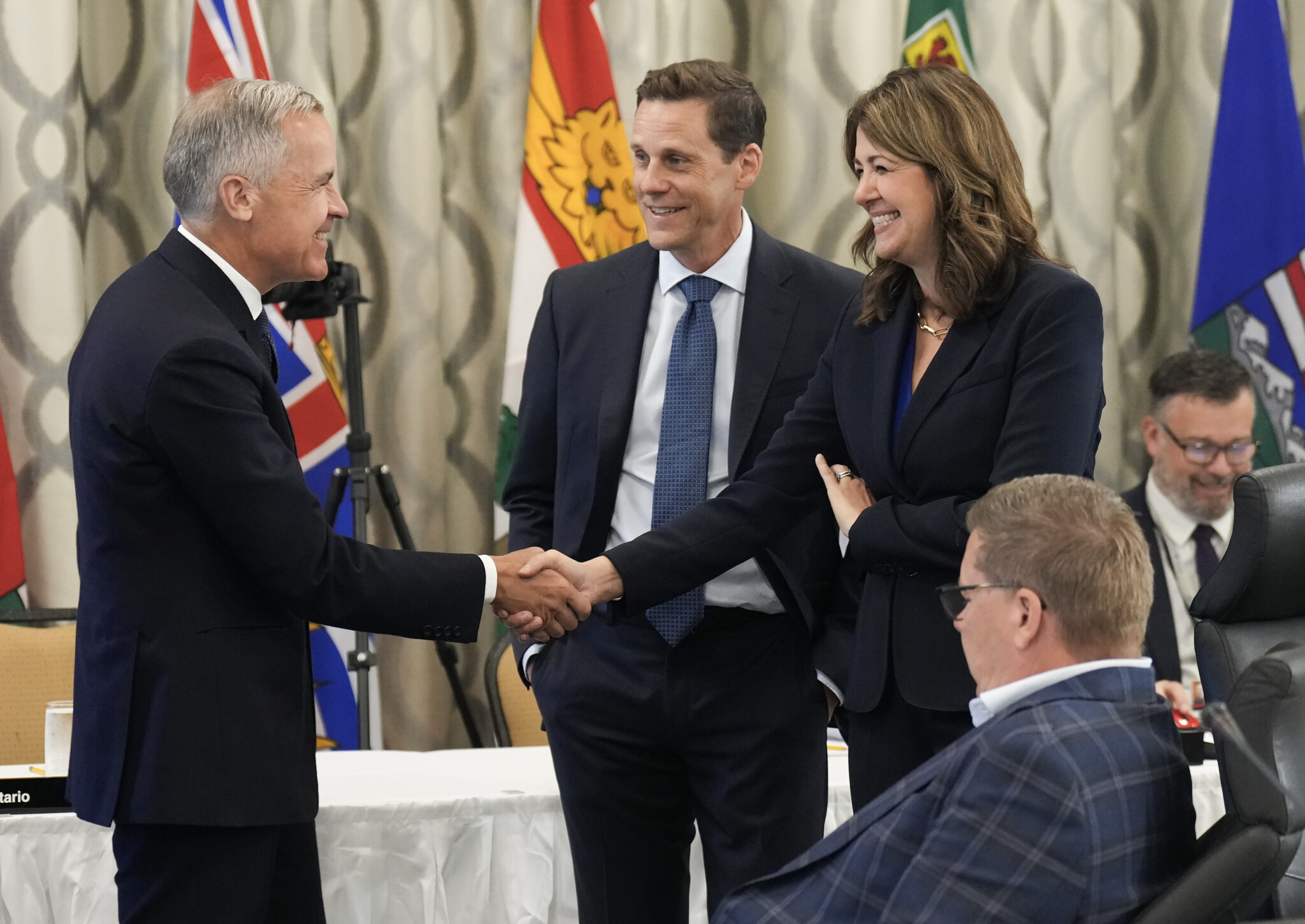‘Most people want to see things getting done’: Hub Politics on why the potential pipeline deal is good politics for Carney and Smith
In this episode of Hub Politics, host Sean Speer is joined by Amanda Galbraith, co-founder and president of Oyster Group, and David Coletto, founder and CEO of Abacus Data, to discuss Prime Minister Mark Carney’s pending pipeline announcement with Alberta Premier Danielle Smith. They examine the political risks for Carney’s B.C. caucus, the shifting public opinion on energy projects, and Smith’s strategic political acumen.
They also discuss Carney’s “who cares” gaffe regarding Trump communications and subsequent apology, including the broader question of whether the Liberal Party remains a pragmatic brokerage party or has fundamentally transformed into a more ideological progressive movement.
You can listen to this episode on Amazon, Apple, and Spotify.
Program Summary
This is an automated summary. Please check against delivery.
The Canadian political landscape is undergoing a significant transformation as economic anxieties increasingly overshadow environmental concerns, creating new opportunities for major infrastructure projects and reshaping the strategic calculations of federal parties.
Public sentiment toward energy infrastructure has evolved considerably in recent years, with growing acceptance of pipeline projects extending even into regions traditionally opposed to such developments. This shift reflects broader changes in how Canadians prioritize policy issues, with climate and environmental concerns declining in importance while economic matters gain prominence. The divergence between these two issue areas has created political space for conversations about resource development that would have been difficult to sustain in previous years.
The changing political dynamics present both opportunities and challenges for the governing party. British Columbia represents a particularly complex political terrain, where federal representatives must balance competing interests within their electoral coalition. The province’s political landscape features overlapping voter bases that complicate straightforward policy positions on energy infrastructure. Federal decision-makers must navigate these tensions carefully, particularly given the significant parliamentary representation at stake.
Alberta’s political environment has also evolved in notable ways. The provincial government has demonstrated a more pragmatic approach to federal relations, resisting opportunities for confrontation in favor of collaborative problem-solving. This shift reflects a broader public desire to see concrete progress on major projects rather than continued jurisdictional disputes. The province’s growing influence in national politics is evident in the connections major party leaders maintain with the region, marking a potential realignment in the country’s political center of gravity.
The concept of a political center remains relevant in Canadian politics, though its location shifts based on prevailing public concerns. The issues that define mainstream political opinion today differ substantially from those that shaped electoral outcomes a decade ago. Economic security and personal financial stability now dominate public attention, reflecting changed circumstances and priorities. Political parties that successfully adapt to these shifting concerns maintain their competitive position, while those that remain anchored to previous issue configurations risk losing relevance.
Natural resources have emerged as a sector where Canadians see significant economic opportunity. This recognition extends beyond traditional resource-producing regions, suggesting a national conversation about economic development priorities. The willingness to reconsider energy infrastructure reflects pragmatic assessments about wealth creation and economic competitiveness, particularly when comparing domestic resource development to international alternatives.
The governing party faces internal tensions as it attempts to reposition itself on economic and environmental issues. Members elected during periods when different priorities dominated must reconcile their political identities with evolving party positions. This internal dynamic could reshape parliamentary representation as some members struggle with rapid policy shifts while others embrace new directions.
Leadership transitions often provide opportunities for parties to realign with changing public sentiment. The ability to move with the political center, rather than remaining fixed to historical positions, represents a strategic advantage in Canadian politics. However, maintaining credibility during such transitions requires careful attention to public perceptions about authenticity and connection to everyday concerns. Successfully navigating these challenges while addressing fundamental economic anxieties will likely determine political success in the coming period.
Has public opinion on energy projects shifted enough to make pipeline deals politically viable across Canada?
How does the potential pipeline deal impact Prime Minister Carney's B.C. caucus and the Liberal Party's identity?
What does Alberta Premier Smith's pragmatic approach to federal relations signal for national politics?




Comments (0)